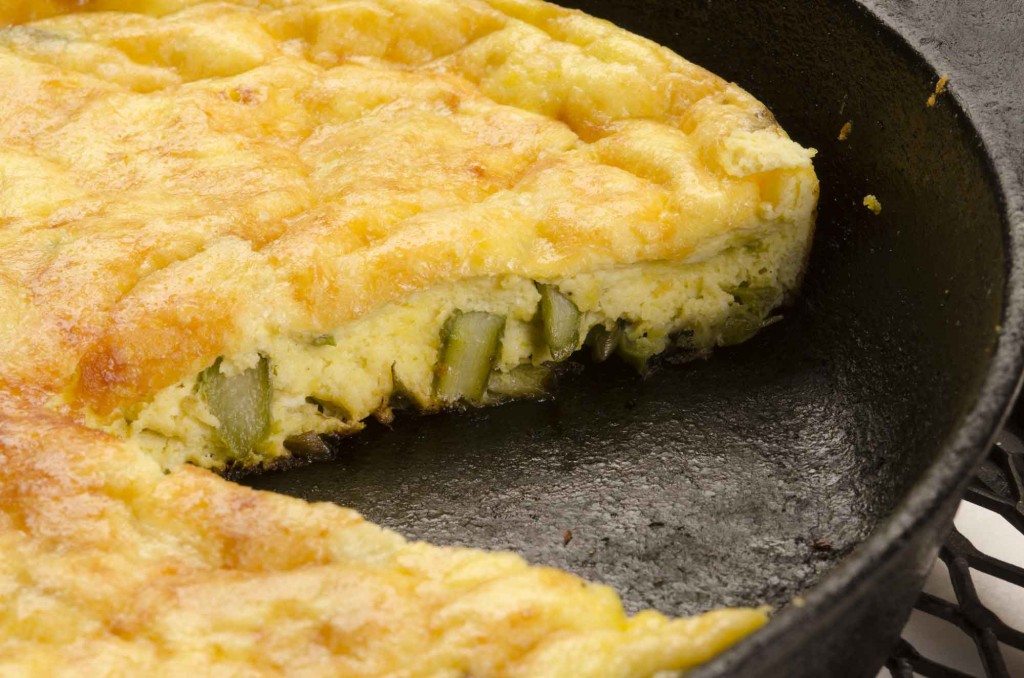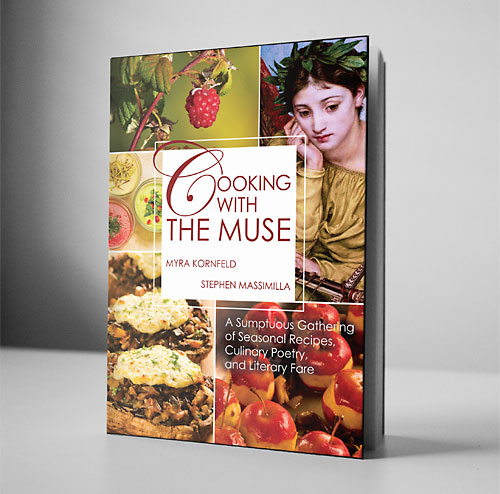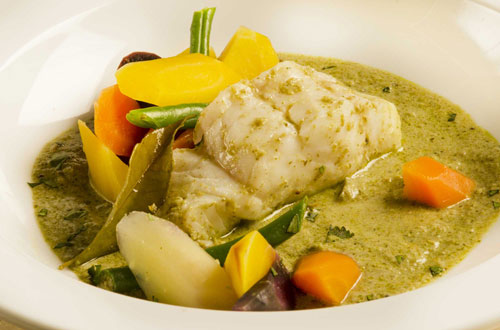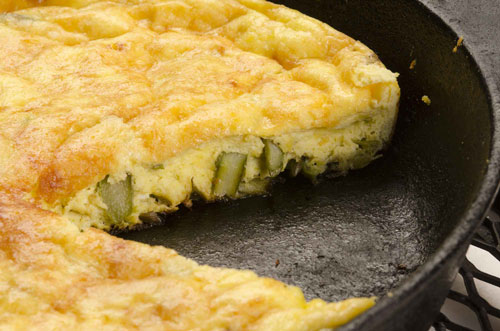ENJOY SPRING’S OFFERING

Share this Post
Love at the lips was touch
As sweet as I could bear;
And once that seemed too much;
I lived on air.
—Robert Frost, from “To Earthward”—
I stick to asparagus, which still seems to inspire thought.
—Charles lamb—
Mediterranean Asparagus-Ricotta Frittata
The magic ingredient in this frittata is the ricotta, which renders the eggs so extraordinarily fluffy that, to allude to Robert Frost, they’ll be dancing on air—and so will you! The caramelized asparagus in the batter are given extra lift by a soupçon of Parmesan. Delivered in its green and golden glory from the sizzling skillet in the oven to your plate (lovely and buttery, a little browned around the edges), this quick dish embodies spring simplicity.
Steam and caramelize the asparagus in the same cast-iron or nonstick skillet until, to quote the poet James McMichael, “his crowns” are “already tender, his spine giving in.” Then add the eggs. After this start on the stovetop, a brief stint in the oven finishes the frittata.
_
Serves 4
2 tablespoons unsalted butter
1 pound asparagus, hard bottom ends (11/2 inches) removed and discarded, stalks cut into 1/2-inch pieces
Salt
2 tablespoons water
6 large eggs
1 cup ricotta (sheep’s, goat’s, or cow’s milk)
Freshly ground black pepper
1/2 cup freshly grated Parmesan cheese (2 ounces)
1. Preheat the oven to 300ºF.
2. Add the butter, asparagus, a sprinkling of salt, and the water to a 10-inch cast-iron or nonstick skillet. Cover and cook until the asparagus are softened, about 4 minutes.
3. Uncover, raise the heat, and cook, stirring constantly, until all of the moisture is evaporated and the asparagus are browned, an additional 3 to 4 minutes.
4. Meanwhile, whisk together in a bowl the eggs, ricotta, 1/2 teaspoon salt, and a generous sprinkling of pepper.
5. Pour the egg mixture over the asparagus and reduce the heat to medium. Cook for 5 minutes, until the eggs start to set around the sides. Sprinkle the Parmesan evenly over the top and place the pan in the oven. Bake until the frittata is set and cooked through, about 15 minutes. (You could slip it under the broiler for the last minute or so for extra browning.)
6. Slide the frittata out of the skillet onto a plate or cutting board. Divide into four portions and serve hot.
Cook’s Note
If you don’t eat all of the frittata in one sitting, you can—unlike many egg dishes—refrigerate it for up to a few days and reheat it.
Poet’s Note
In this stanza from the “Asparagus” section of the poem “The Vegetables,” James McMichael’s speaker is telling an intimate story:
He is cut down and taken away.
She can smell him steaming, his crowns
Already tender, his spine giving in.
Now he is threatening to wither terribly,
And slip from the water altogether,
And billow through the kitchen like prayer.
The asparagus are undergoing their spring transformation and journey from garden to dinner table. They must be “cut down and taken away” when the time is right; these gifts of nature have a short growing season, and they don’t keep long once harvested. That is why “Now he is threatening to wither terribly”: She has to be careful not to overcook the spears. She knows they’re ready when “She can smell him steaming, his crowns / Already tender, his spine giving in.”
_
EGG
In this kingdom
the sun never sets;
under the pale oval
of the sky
there seems no way in
or out,
and though there is a sea here there is no tide
For the egg itself
is a moon
glowing faintly
in the galaxy of the barn,
safe but for the spoon’s
ominous thunder,
the first delicate crack
of lightning.
—Linda Pastan —
TELL YOUR FRIENDS!





